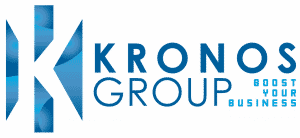Challenges in implementing a procurement digital strategy and the solutions for them

Summary
With global business trends pointing towards increased digital technology adoption, procurement as a business function must adapt to cater to the needs of the market. This calls for a digital strategy for procurement, which provides a set of guidelines for incorporating digitalisation into the procurement process. In this process, businesses may encounter certain challenges in implementing a procurement strategy, like resistance to change, integration complexities, cybersecurity risks, and more. Understanding these challenges allows businesses to formulate strategies to address these challenges, such as employee training and education, robust risk management, and agile software usage. These solutions to the challenges in implementing a procurement strategy can go a long way.
As macroeconomic trends like globalisation and Industry 4.0 become increasingly prominent across the world, businesses must adapt to these changing conditions to ensure competitiveness. A procurement digital strategy is an effective tool in this endeavour.
With the after-effects of the pandemic and shifting geopolitical conditions taking a toll on global supply chains, the procurement functions of international businesses and the businesses that rely on them have suffered severely.
Presently, businesses have taken steps to adapt their procurement practices to address the uncertainties of the current business landscape. One effective method of achieving this stability has been through digital technology.
Newer technologies and tools in procurement have been imperative in helping businesses enhance their supply chain resilience and facilitate a more agile and efficient procurement function.
To implement these new developments, a procurement digital strategy is a necessity. This provides a solid foundation and guidelines for businesses to implement digitalisation in their procurement processes. It is an essential tool to ensure that the strategic goals of the business align with those of the procurement department.
However, implementing a digital strategy for procurement is not as easy as it may seem at first glance. Businesses may run into a range of challenges in this process. Being aware of the potential challenges and the solutions that can be implemented to resolve these challenges will go a long way in helping businesses establish a solid digital strategy for procurement.
Challenges in implementing a procurement digital strategy
Here are the most common challenges that businesses may face in the process of implementing a digital strategy for procurement.
Aversion to change
When new technologies are being implemented and automation is taking place, employees may become naturally resistant to change due to potential additional workloads or the possibility of job displacement.
Complexity of integration
Depending on the nature of the procurement software and other digital tools that a business is implementing, the process of integrating them into existing software may be complex and even costly.
Data quality management
When it comes to digital systems, having precise, accurate data is highly important as poor data can cause errors and inefficiencies both in the short and long term. Ensuring a high level of data quality is crucial.
Supplier onboarding complications
Throughout the procurement process, businesses will engage with a wide variety of suppliers. This may include smaller suppliers who lack the technological capability to integrate with internal systems.
Cybersecurity risk increase
With technology integration comes cybersecurity risks. These can range from internal risks like infrastructure vulnerabilities to external threats like malware, phishing, social engineering, and cloud security threats.
Scalability considerations
As a business grows over time, so will its procurement function. This means that businesses need to ensure the long-term scalability of their digitalised procurement process to avoid complications later down the line.
Solutions to the challenges in implementing a digital strategy
Businesses have to be tactful and strategic to address the challenges that come with implementing a procurement digital strategy. Here is how the above challenges can be addressed adequately.
Offering employee training
Provide comprehensive training and development opportunities for employees to learn about the digital strategy and its benefits. Make sure to engage them in relevant processes and address their concerns properly.
Investing in adaptable software
While implementing new software comes with a degree of complexity, investing in adaptable software that offers APIs and middleware to streamline the process of integration can significantly ease the effort.
Implementing data governance practices
To ensure that the data used in digital procurement systems is accurate and consistent, implement data governance practices. Regular data audits and system cleaning best practices are effective in this context.
Supporting new suppliers
Offer training to new suppliers and support those who do not possess the technological prowess to work alongside digital systems. This is an effective way to streamline the supplier onboarding process.
Following risk management frameworks
Following a risk management framework to address cybersecurity risks is a good practice to ensure that the business is protected from potential threats. Training employees on cybersecurity practices is also a crucial aspect of this.
Reviewing and updating the strategy regularly
Keeping track of scalability requirements is extremely important in all facets of business operations in a growing business. Choosing scalable solutions that can address these requirements and regularly evaluating the digital strategy is necessary in this case.
Transform your procurement function with a robustly implemented procurement digital strategy
In a rapidly changing business environment, adapting digital technologies is a highly effective way of staying competitive. For a core business function like procurement, implementing a well-thought-out digital strategy is a great option to achieve digital transformation and future-proof operations.




